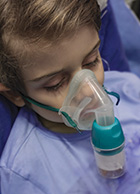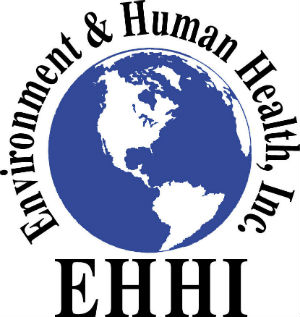Asthma Tracking Law in Connecticut
After Environment and Human Health, Inc. (EHHI) showed that the asthma rates in CT were high and getting higher, EHHI was able to get an Asthma Tracking Bill passed in 2001. The CT Bill includes The Commissioner of Public Health, in consultation with local directors of health, shall establish a comprehensive state-wide asthma plan. This has worked really well, and the plan is reevaluated every five years. Sec 41. (a) Each local or regional board of education shall require each pupil enrolled in the public schools to have health assessments pursuant to the provisions of this section. Such assessments shall be conducted by a legally qualified practitioner of medicine, a licensed natureopath, a person licensed to practice chiropractic, an advanced practice registered nurse or registered nurse, licensed pursuant to chapter 378, a physician assistant, licensed pursuant to chapter 370, or by the school medical advisor to ascertain whether such pupil is suffering from any physical disability tending to prevent such pupil from receiving the full benefit of school work and to ascertain whether such school work should be modified in order to prevent injury to the pupil or to secure for the pupil a suitable program of education. No health assessment shall be made of any child enrolled in the public schools unless such examination is made in the presence of the parent or guardian or in the presence of another school employee. The parent or guardian of such child shall receive prior written notice and shall have a reasonable opportunity to be present at such assessment or to provide for such assessment himself or herself. A local or regional board of education may deny continued attendance in public school to any child who fails to obtain the health assessments required under this section. (b) Each local or regional board of education shall require each child to have a health assessment prior to public school enrollment. The assessment shall include: (1) A physical examination which shall include hematocrit or hemoglobin tests, height, weight, [and] blood pressure, and, beginning with the 2003-2004 school year, a chronic disease assessment which shall include, but not be limited to, asthma as defined by the Commissioner of Public Health pursuant to subsection (c) of section 19a-62a, as amended by this act. The assessment form shall include (A) a check box for the provider conducting the assessment, as provided in subsection (a) of this section, to indicate an asthma diagnosis, (B) screening questions relating to appropriate public health concerns to be answered by the parent or guardian, and (C) screening questions to be answered by such provider; (2) an updating of immunizations as required under section 10-204a, provided a registered nurse may only update said immunizations pursuant to a written order by a physician or physician assistant, licensed pursuant to chapter 370, or an advanced practice registered nurse, licensed pursuant to chapter 378; (3) vision, hearing, speech and gross dental screenings; and (4) such other information, including health and developmental history, as the physician feels is necessary and appropriate. The assessment shall also include tests for tuberculosis, sickle cell anemia or Cooley's anemia and tests for lead levels in the blood where the local or regional board of education determines after consultation with the school medical advisor and the local health department, or in the case of a regional board of education, each local health department, that such tests are necessary, provided a registered nurse may only perform said tests pursuant to the written order of a physician or physician assistant, licensed pursuant to chapter 370, or an advanced practice registered nurse, licensed pursuant to chapter 378. (c) Each local or regional board of education shall require each pupil enrolled in the public schools to have health assessments in either grade six or grade seven and in either grade ten or grade eleven.
The assessment shall include: (1) A physical examination which shall include hematocrit or hemoglobin tests, height, weight, [and] blood pressure, and, beginning with the 2003-2004 school year, a chronic disease assessment which shall include, but not be limited to, asthma as defined by the Commissioner of Public Health pursuant to subsection (c) of section 19a-62a, as amended by this act. The assessment form shall include (A) a check box for the provider conducting the assessment, as provided in subsection (a) of this section, to indicate an asthma diagnosis, (B) screening questions relating to appropriate public health concerns to be answered by the parent or guardian, and (C) screening questions to be answered by such provider; (2) an updating of immunizations as required under section 10-204a, provided a registered nurse may only update said immunizations pursuant to a written order of a physician or physician assistant, licensed pursuant to chapter 370, or an advanced practice registered nurse, licensed pursuant to chapter 378; (3) vision, hearing, postural and gross dental screenings; and (4) such other information including a health history as the physician feels is necessary and appropriate. The assessment shall also include tests for tuberculosis and sickle cell anemia or Cooley's anemia where the local or regional board of education, in consultation with the school medical advisor and the local health department, or in the case of a regional board of education, each local health department, determines that said screening or test is necessary, provided a registered nurse may only perform said tests pursuant to the written order of a physician or physician assistant, licensed pursuant to chapter 370, or an advanced practice registered nurse, licensed pursuant to chapter 378. (d) The results of each assessment done pursuant to this section and the results of screenings done pursuant to section 10-214 shall be recorded on forms supplied by the State Board of Education. Such information shall be included in the cumulative health record of each pupil and shall be kept on file in the school such pupil attends. If a pupil permanently leaves the jurisdiction of the board of education, the pupil's original cumulative health record shall be sent to the chief administrative officer of the school district to which such student moves. The board of education transmitting such health record shall retain a true copy. Each physician, advanced practice registered nurse, registered nurse, or physician assistant performing health assessments and screenings pursuant to this section and section 10-214 shall sign each form and any recommendations concerning the pupil shall be in writing. (e) Appropriate school health personnel shall review the results of each assessment and screening as recorded pursuant to subsection (d) of this section. When, in the judgment of such health personnel, a pupil, as defined in section 10-206a, is in need of further testing or treatment, the superintendent of schools shall give written notice to the parent or guardian of such pupil and shall make reasonable efforts to assure that such further testing or treatment is provided. Such reasonable efforts shall include a determination of whether or not the parent or guardian has obtained the necessary testing or treatment for the pupil, and, if not, advising the parent or guardian on how such testing or treatment may be obtained. The results of such further testing or treatment shall be recorded pursuant to subsection (d) of this section, and shall be reviewed by school health personnel pursuant to this subsection. (f) On and after February 1, 2004, each local or regional board of education shall report, on an annual basis, the total number of pupils per school and per school district having a diagnosis of asthma recorded on such health assessment forms to the local health department and the Department of Public Health. The report shall contain the asthma information collected as required under subsections (b) and (c) of this section and shall include pupil age, gender, race, ethnicity and school. Beginning on October 1, 2004, and every three years thereafter, the Department of Public Health shall review the asthma screening information reported pursuant to this section and shall submit a report to the joint standing committees of the General Assembly having cognizance of matters relating to public health and education concerning asthma trends and distributions among pupils enrolled in the public schools. The report shall be submitted in accordance with the provisions of section 11-4a and shall include, but not be limited to, trends and findings based on pupil age, gender, race, ethnicity, school and the education reference group, as determined by the Department of Education for the town or regional school district in which such school is located. Sec. 42. Section 19a-62a of the general statutes is repealed and the following is substituted in lieu thereof: (a) (1) Within available appropriations, the Commissioner of Public Health, in consultation with the Commissioner of Social Services, shall establish a pilot program for the early identification and treatment of pediatric asthma. The Commissioner of Public Health shall make grants-in-aid under the pilot program for projects to be established in two municipalities to identify, screen and refer children with asthma for treatment. Such projects shall work cooperatively with providers of maternal and child health, including, but not limited to, local health departments, community health centers, Healthy Start and Healthy Families, to target children who were born prematurely, premature infants or pregnant women at risk of premature delivery for early identification of asthma. Such projects may utilize private resources through public-private partnerships to establish a public awareness program and innovative outreach initiatives targeting urban areas to encourage early screening of children at risk of asthma. [(b)] (2) The Commissioner of Public Health shall evaluate the pilot program established under this [section] subsection and shall submit a report of the commissioner's findings and recommendations to the joint standing committees of the General Assembly having cognizance of matters relating to public health, human services and appropriations and the budgets of state agencies, not later than October 1, 2001, in accordance with the provisions of section 11-4a. (b) Not later than January 1, 2003, the Commissioner of Public Health shall establish and maintain a system of monitoring asthma. Such system shall include, but not be limited to, annual surveys of asthma in schools and reports of asthma visits and the number of persons having asthma as voluntarily reported by health care providers. The monitoring system may include reports of the number of persons having asthma medication prescriptions filled by pharmacies in this state. Such system shall be used by the commissioner in estimating the annual incidence and distribution of asthma in the state, including, but not limited to, such incidence and distribution based on age and gender and among ethnic, racial and cultural populations and on school enrollment and the education reference group, as determined by the Department of Education, for the town or regional school district in which the student's school is located. (c) The Commissioner of Public Health, in consultation with local directors of health, shall establish a comprehensive state-wide asthma plan. Not later than October 1, 2002, the commissioner shall develop a model case definition of asthma for purposes of asthma diagnosis and monitoring. (d) Not later than October 1, 2003, and annually thereafter, the commissioner shall submit a report of the status and results of the monitoring system established under subsection (b) of this section and the state-wide asthma plan established under subsection (c) of this section to the joint standing committee of the General Assembly having cognizance of matters relating to public health, in accordance with the provisions of section 11-4a.
Read about the Statewide Asthma Plan: "A Collaborative Effort for Addressing Asthma in Connecticut 2013-2018."
